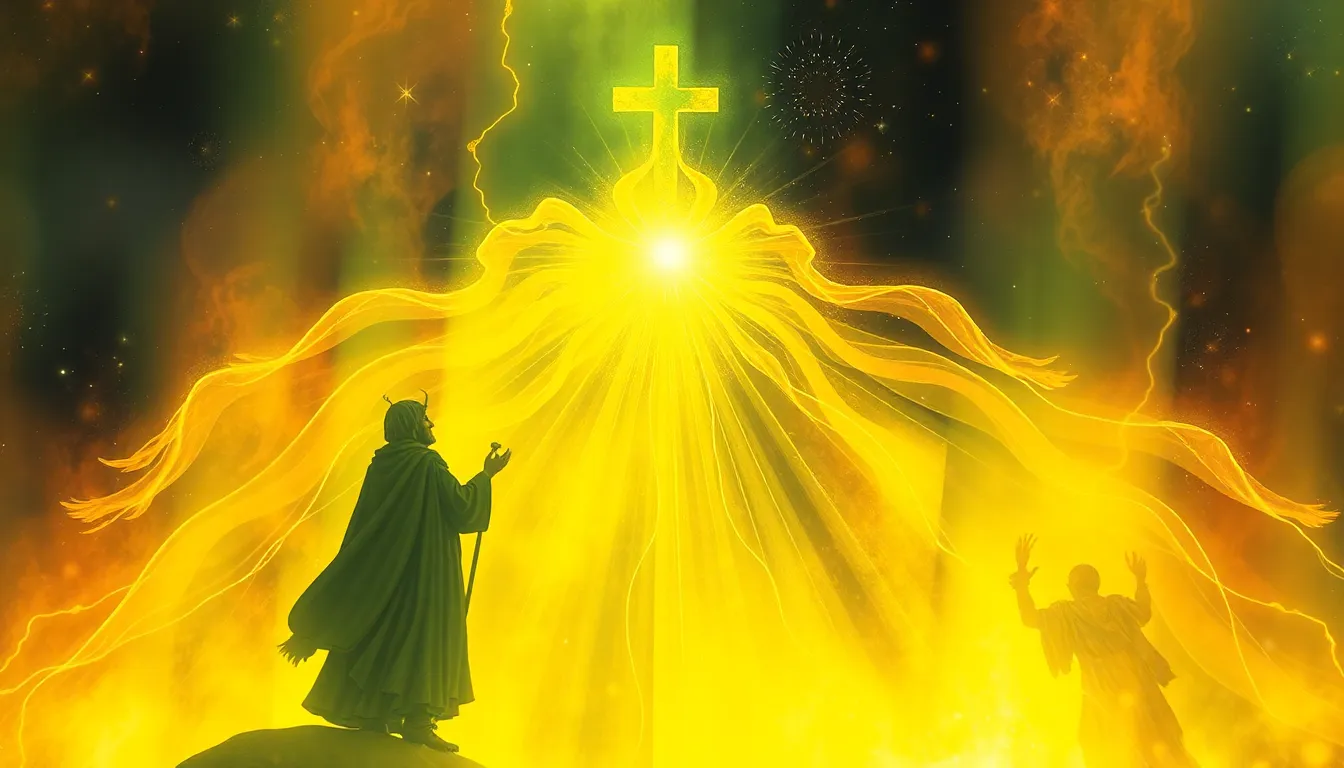The Quest for the Mythical Challenge: Legends of Trials
I. Introduction to Mythical Challenges
Mythical challenges have long been a cornerstone of folklore and mythology, serving as trials that heroes must face in their journeys. These challenges, often imbued with symbolic meaning, reflect the struggles and triumphs of the human experience. In this article, we will explore the significance of these trials in cultural narratives, delve into historical contexts, and examine their lasting impact on both ancient and modern storytelling.
II. Historical Context of Trials in Mythology
Throughout history, various civilizations have depicted legendary challenges that shape their cultural narratives.
A. Ancient civilizations and their legendary challenges
- Greek mythology: The Labors of Hercules – Hercules was tasked with completing twelve impossible labors, each representing a unique trial that tested his strength and cunning.
- Norse legends: The Trials of Thor – Thor, the god of thunder, faced many challenges, including his encounters with giants and quests to retrieve his stolen hammer, Mjölnir.
B. The role of trials in hero’s journey archetypes
Mythical challenges often align with Joseph Campbell’s concept of the hero’s journey, where the protagonist faces trials that lead to growth, transformation, and eventual return.
C. Evolution of mythical challenges through history
As societies evolved, so did the nature of these challenges, reflecting changing values, beliefs, and cultural contexts.
III. The Symbolism of Trials
At their core, mythical challenges symbolize various aspects of the human experience.
A. Personal growth and transformation through challenges
Trials often serve as catalysts for character development, forcing heroes to confront their weaknesses and emerge stronger.
B. Moral and ethical dilemmas presented in trials
Many challenges pose ethical questions, presenting the hero with choices that define their character and values.
C. The psychological impact of facing trials in legends
Confronting trials can serve as a metaphor for real-life struggles, illustrating the psychological resilience needed to overcome adversity.
IV. Notable Myths and Their Challenges
Several myths highlight the essence of trials and their complexities.
A. The Epic of Gilgamesh: The quest for immortality
In this ancient Mesopotamian epic, Gilgamesh embarks on a quest to discover the secret of eternal life, ultimately confronting the inevitability of death.
B. The Odyssey: Odysseus’s trials on his journey home
Odysseus faces numerous challenges during his long journey home, including encounters with Cyclopes, sirens, and the wrath of gods.
C. The Mahabharata: The game of dice and its consequences
This Indian epic illustrates the devastating outcomes of a fateful game of dice, highlighting the themes of fate, duty, and moral dilemmas.
V. Cultural Variations of Trials
Mythical challenges vary widely across cultures, yet they often share common themes.
A. Comparison of challenges across different cultures
- In African folklore, heroes often face trials that test their wisdom and resourcefulness.
- In Japanese mythology, challenges frequently involve spiritual purification and the balance of nature.
B. The common themes in trials from around the world
Regardless of culture, many trials deal with themes of heroism, sacrifice, and the struggle between good and evil.
C. Unique challenges in lesser-known mythologies
Exploring less mainstream mythologies reveals a rich tapestry of unique trials, such as the trickster tales found in Native American folklore.
VI. The Role of Guardians and Adversaries
In many myths, the journey is shaped by both guardians and adversaries who play crucial roles.
A. The significance of mentors and guides in mythical trials
Figures like Athena in Greek mythology often guide heroes, providing wisdom and assistance during their trials.
B. The adversaries and their role in shaping the hero’s journey
Adversaries, such as monsters or rival heroes, challenge the protagonist, forcing them to grow and adapt.
C. Examining famous guardians: Charon, Cerberus, and others
- Charon: The ferryman of Hades, who guides souls across the river Styx.
- Cerberus: The three-headed dog that guards the gates of the Underworld, representing barriers that must be overcome.
VII. Modern Interpretations of Mythical Challenges
Today, mythical challenges continue to resonate in various forms of media.
A. Adaptations in literature, film, and video games
Contemporary stories often draw inspiration from ancient myths, reinterpreting trials for modern audiences.
B. The relevance of mythical trials in contemporary society
These challenges reflect our own struggles and aspirations, serving as a source of inspiration and motivation.
C. Analyzing the impact of these adaptations on popular culture
The integration of mythical challenges into popular culture influences how we perceive heroism and personal growth.
VIII. Psychological and Philosophical Insights
Mythical trials provide rich material for psychological and philosophical exploration.
A. The quest for self-discovery through trials
Many heroes undergo profound self-discovery as they face and overcome their challenges.
B. Trials as metaphors for real-life challenges
These mythical narratives serve as allegories for the obstacles we encounter in our own lives.
C. Philosophical reflections on the nature of struggle and perseverance
Philosophers often examine the value of struggle, suggesting that overcoming challenges is essential for personal development.
IX. The Legacy of Mythical Challenges
The impact of mythical challenges extends beyond their original narratives.
A. How trials shape cultural identity and collective memory
These stories create a shared cultural identity, connecting generations through common themes of struggle and triumph.
B. The influence of legendary challenges on modern hero narratives
Contemporary stories of heroes often mirror the trials faced by their mythical predecessors, reinforcing timeless themes.
C. Preserving the essence of mythical challenges in storytelling
As we continue to tell these stories, we preserve their essence, allowing future generations to learn from the trials depicted within them.
X. Conclusion: The Enduring Allure of Trials
In summary, mythical challenges serve as powerful symbols of struggle and growth, reflecting the complexities of the human experience. They remind us of the transformative power of trials, both in ancient narratives and in our contemporary lives. As we continue to explore and adapt these legends, the allure of mythical challenges remains ever-present, inspiring us to face our own trials with courage and resilience.



